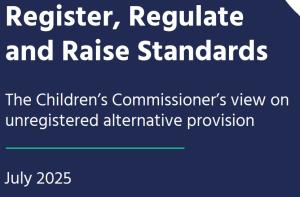Six months have passed since the Covid-19 pandemic took hold in this country and we entered an unprecedented lockdown. During this time, I have made it my Office’s mission to highlight the risks to children caused by the pandemic and the measures to contain it, particularly the most vulnerable, and push for their interests to be a top priority.
Children have fewer health risks from Covid-19 and yet they have suffered disproportionately from the nation’s efforts to contain the virus. This report aims to set out, in one place, the key ways in which children’s lives have been impacted as a result of the Covid-19 crisis – the nation’s biggest test since the Second World War. In doing so, it provides a roadmap for what must be done to enable children to recover from their experiences, and how their needs must be put first in the event of further lockdowns.
This is not simply a story of doom and gloom. For some children, certain aspects of the pandemic brought benefits. Families whose incomes remained stable, perhaps as a result of the furlough scheme, often found that they had more quality time to spend with one another. The percentage of children feeling stressed some of the time actually decreased from 47% to 34% between March and June.
Furthermore, I have been struck by the dedication and commitment of many teachers, social workers and other professionals up and down the country who, under extreme pressure, have been working with children during this time, in new and innovative ways, to protect them from the worst impacts of the crisis. There have been excellent examples of action taken to support children by national and local government, like the announcement of £1 billion of catch up funding at schools, providing children with laptops for online learning or councils doing everything they could to continue to keep services for families open – even if in some cases the support could have gone further. It has been encouraging to see a greater understanding developing within government of what it means to be a vulnerable child and the particular challenges they face.
But sadly, as this report highlights, in many decisions taken over the last 6 months, children haven’t been at the forefront. While pubs, restaurants and non-essential shops opened, the majority of children were not able to attend school. This disruption has been damaging to children – especially vulnerable children who are likely to have had a vastly different experience of the pandemic than their more affluent peers. New evidence collected by my Office shows that 41% of children are more stressed about their schoolwork and exams since schools closed in March. Many children have felt lonely and isolated from their friends.



